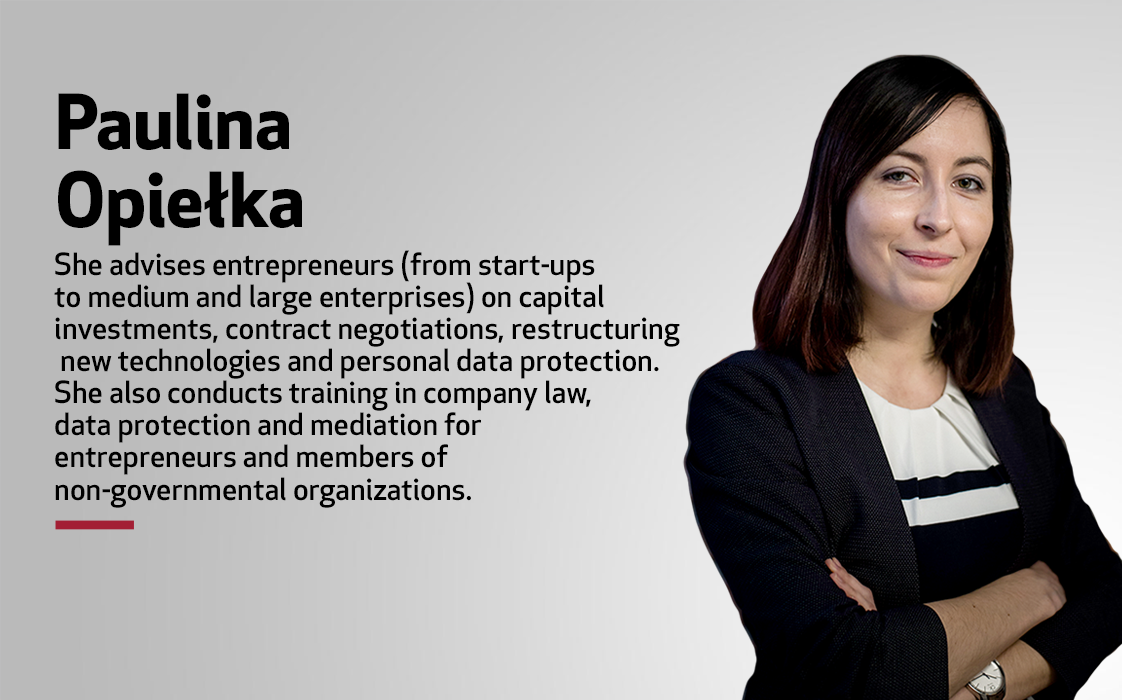The state of epidemic and multiple restrictions and prohibitions implemented during previous weeks in Poland have turned many businesses upside down. Limiting freedom of movement, banning many types of business activities (such as gastronomy, entertainment, shopping centres etc.) and moving many other services to the on-line sphere may result in challenges that many small and medium businesses will not overcome. So if you are wondering how to maintain your business continuity thought this difficult period, here are some helpful guidelines for you.
- Apply for public founding or release from public duties
A newly appointed law so-called “Anti-crisis shield” allows entrepreneurs to apply for many types of founding or release from public duties. If due to COVID-19 your incomes have decreased or you are facing difficulties maintaining your regular business, you may apply for many grants, including:
- Co-financing of your employees’ salaries;
- One-time benefits and loans;
- Exemption from paying social security contributions.
The terms and conditions of each grant vary, depending on the scope of your work, number of employees and the degree of financial liquidity loss. The newly adapted employment laws allow you also to change working hours of some employees or sign an agreement lowering their salaries. Check the official government website or consult an adviser to get more information: https://www.gov.pl/web/tarczaantykryzysowa
- Re-read your contracts
State of epidemic can be considered as force majeure in many business relations, influencing your rights and obligations. Check if your contracts include any specific provisions regarding that matter. Usually, you would be required to inform your business partner that you are currently acting under the force majeure condition. Take a special look at your insurance agreements as they may have clauses exempting the insurers liability during epidemic. If you are renting office space, you may be required to take up extra actions to regulate the rent (rental agreements in big shopping centres expire by law, other agreements may be subject to new regulations). In extreme cases, you may refer to rebus sic stantibus clause (extraordinary change of circumstances) and seek remedy at court.
- Catch up with your partners
The state of epidemic affects everyone differently. Get in touch with your partners to learn about their situation. Will they be able to provide you service on site if your servers crash suddenly? Are they able to deliver goods on time or will they end up stuck on a border? If you are facing challenges in timely delivery of your own services, inform your clients immediately. In some cases, your returns policy can be more flexible now (i.e. if you are cancelling some events, time for returns have been extended, you can also propose vouchers). In other, more complicated matters, you may be required to re-negotiate your contracts. Don’t wait until the last moment – current situation calls for more flexibility in business and it will be much easier for you to maintain trust if you focus on transparency.
- Move on-line – safely and efficiently
Moving from the offline to the on-line does not end with adapting your services to the other medium. Behind all that you offer there is the whole back-end business: signing contracts, communicating with authorities, taking care of corporate matters or ensuring safety and privacy of your data. If you don’t have it yet, get an ePUAP account that will allow you to communicate with governmental agencies. Relying on regular mail, even when applying for grants, may prolong the process extensively. Check if you can annex your contracts without regular written signatures. If not, you can substitute that by using certified electronic signature. If you have to operate the company from the level of Management Board or Shareholders Meetings, now you can do that on-line too. Last but not least, verify the privacy settings of programmes and apps you use for daily communication and document sharing. Many platforms are low-key scanning your data and for contractors valuing IT security, this will be unacceptable.
- Take advantage of the extended deadlines
Spring is the time for many financial and reporting obligations. Running your business, you may inevitably be forced to follow other deadlines too. The “Anti-crisis shield” has extended many of those, such as:
- Deadline for notification to the central register of beneficial owners – 13/07/2020;
- Court deadlines have been suspended for the period of epidemic;
- Applying for extension of legal stay in Poland for foreigners – you can do that up to 30 days after the end of state of epidemic and remain legally in Poland;
- Payment of perpetual usufruct fee (opłata za użytkowanie wieczyste) – 30/06/2020;
- Other deadlines (such as for preparation and acceptance of financial statements) can be prolonged in the nearest future by the Ministry of Finance.
- Remain calm
As trivial as it sounds, keeping your cool is the most crucial element of surviving the crisis. Don’t let your emotions overflow you but instead try to build up a strategy for upcoming months and monitor the current state of your company. If your financial situation is declining, make sure that you are not fulfilling conditions for applying for bankruptcy or restructuring. The deadlines for applying for those types of protection are relevantly short and as a Member of the Board you are liable for company’s debts if you miss them. Try to maintain objectivity and ask for help if needed. The business environment will change in the most unprecedented way in the upcoming months. It will definitely be a challenge, but hopefully, in some ways, it will also open up doors for new opportunities.






